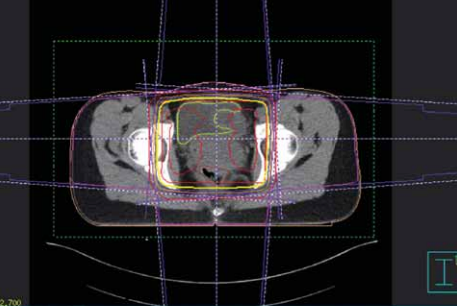Increased use of intrauterine contraceptives (IUCs) and implants for regular contraception could significantly reduce the incidence of unintended pregnancy. It has, however, proved challenging to promote use of these long-acting reversible contraceptives (LARCs) in clinical practice. This article explains how lessons from a successful project in the USA are being used to encourage the uptake of LARCs among women in Hull.
Time to think about women with epilepsy
Each year 2,500 women with epilepsy have a baby, and before they conceive only 46% are aware that their condition could affect their unborn child. It is essential to encourage women with epilepsy to think about contraception, conception and pregnancy, and the Quality and Outcomes Framework (QOF) now includes an indicator for these very issues.
Taking the right route to ovarian cancer diagnosis
Recommendations from the National Institute for Health and Clinical Excellence (NICE) aim to prompt rapid investigation of women with patterns of symptoms suggestive of ovarian cancer. But this is just one of a plethora of guidance for primary care, and incorporating it into our daily practice remains challenging. So how should we apply the NICE ovarian cancer guidelines to our patients?
Revealing the truth about labial reduction
Increasing numbers of healthy women are asking their GPs to refer them for labial reduction. This does not just have potentially important cost implications for service commissioners. There are also considerable ethical issues for GPs to consider before referring women for this form of female genital cosmetic surgery.
Lichen sclerosus
Getting it right for our women – the Forum’s next steps
In these uncertain times for contraception and sexual health services, the voice of the Primary Care Women’s Health Forum is becoming ever more important. We have been very active in formulating our latest plans, so that we can respond to our members’ concerns and ensure that we protect services for women.
The rise of gestational diabetes
As obesity rates continue to soar in women of reproductive age, gestational diabetes mellitus (GDM) is an increasingly important and prevalent problem. Appropriate recognition and careful management of GDM are essential. This will not only improve the outcomes of pregnancy, but may also have a beneficial effect on a woman’s lifelong risk of developing type 2 diabetes.
Editorial
A heartfelt, if belated, welcome to 2012. It can be difficult to feel positive at this time of year. The Christmas and New Year celebrations are well in the past, the waiting room is full of patients with coughs and colds, and it can seem a long time until summer. The next few months are likely to seem especially depressing this year given the gloomy economic outlook, but there is still a lot to look forward to in 2012.
From fertility to menopause: bridging the gap with the LNG-IUS
The levonorgestrel-releasing intrauterine system (LNG-IUS; Mirena) was first licensed in the UK for contraception in 1995. But it soon became evident that it had other clinical advantages and the LNG-IUS is now also available for the prevention of endometrial hyperplasia in women who are taking oestrogen as part of hormone replacement therapy (HRT).
After the cure: gastrointestinal problems in cancer survivors
Over the last 30 years, there has been a threefold increase in the number of cancer survivors. As a result more women are living with the long-term side-effects of their treatment. Gastrointestinal (GI) symptoms after pelvic radiotherapy are especially important, as they are common and impair quality of life. Since patients are likely to present in primary care, GPs and practice nurses can help to ensure appropriate initial management and referral.
STIs in the over-45s: A public health approach
Traditionally, older women and men have not been seen as being at risk of acquiring sexually transmitted infections (STIs), and have not been considered by policy makers. But infection rates are rising at a time of NHS changes, including the proposed transfer of responsibility for sexual health promotion to local authorities. Significant new resources are unlikely, so we need to think creatively about how to respond to this worrying trend.
Find the cause of non-menstrual bleeding
Non-menstrual bleeding is alarming for women, and is a frequent reason for a consultation with a health professional. There are many potential explanations. Most are benign, but some are potentially very serious. So a careful history and assessment are essential when a woman presents with post-coital, intermenstrual or postmenopausal bleeding.






















